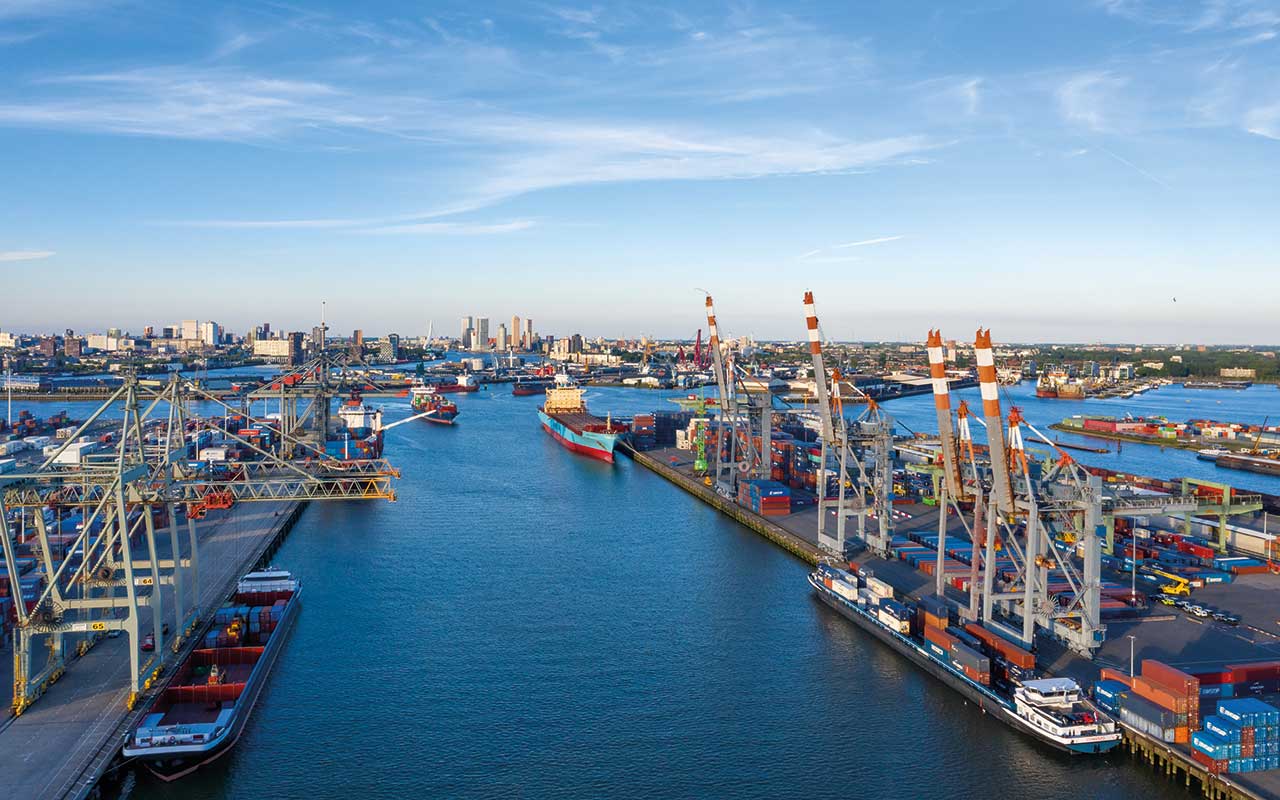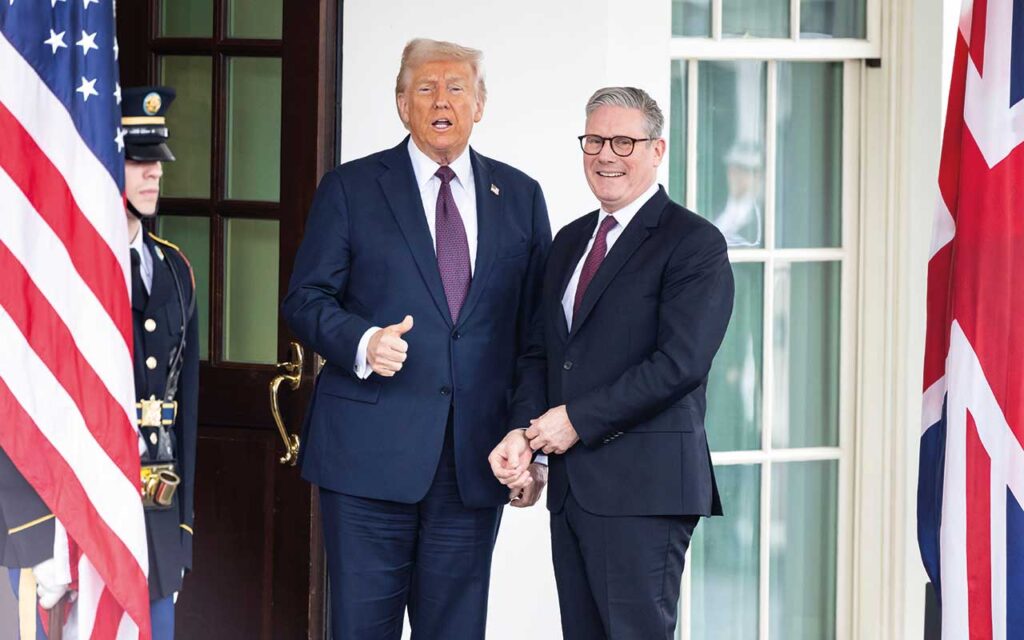utline UK-EU and UK-US trade deals are both highly politically significant, taking place against the backdrop of the global uncertainty caused by the Trump tariff policy.
And while the details remain sketchy, they have major implications for UK agriculture, in both cases opening up opportunities for exports, but also raising concerns over what might be coming the other way.
UK-EU deal
Ever since our formal departure from the EU in January 2021, UK meat exports to the EU have been hampered by additional red tape and documentation requirements, including export health certificates (EHCs), border checks, associated costs and delays.
The result has been a damaging 21% drop in agrifood exports and a 7% drop in imports since then.
The outline sanitary and phytosanitary (SPS) agreement, a key element of the deal, will remove much of this red tape, including EHCs, making it easier for importers and exporters, although the timings and details are still unclear.
Some routine checks on animal and plant products will be removed completely, allowing goods to flow freely again, including between Great Britain and Northern Ireland.
The UK will also be able to again sell various products to the EU that had been thwarted by the new Brexit arrangements, such as burgers and sausages.
The agreement will have no time limit, giving vital certainty to businesses, the government said. It said the SPS deal could lower food prices and increase choice on supermarket shelves and, combined with an Emissions Trading System, is set to add nearly £9bn to the UK economy by 2040.
While ardent pro-Brexiteers describe the deal, which also covers steel, airport e-gates and more, as a ‘betrayal’, it has generally been welcomed, particularly by the meat industry.
The British Meat Processors Association said: “This government has managed to achieve what the previous government promised us originally, but didn’t deliver.
“The joint declaration, while in the early stages, promises to bring back all the trade that simply ceased after Brexit due to crippling red tape and tens of millions of extra costs.”
Dr Jason Aldiss, executive director of the Association of Independent Meat Suppliers, also welcomed the ‘common-sense agreement’.
“To have 100% paperwork checks and up to 30% physical checks removed entirely for red meat, poultry and eggs is very welcome. The cost savings in terms of export health certificates, especially on groupage loads, is significant,” he said.
Import check concern
The big concern, however, is what it means for import checks. After all, the African swine fever (ASF) disease picture has changed markedly since January 2021 and foot-and-mouth (FMD) reappeared in the EU this year.
In the NPA’s initial response, chief executive Lizzie Wilson welcomed the removal of export barriers, but said the deal must not result in an open door for EU meat imports and ‘a reason by government to take their eye off the threat posed by the illegal import of products of animal origin (POAO)’.
The government has since clarified that the agreement will allow the UK to take action to protect biosecurity.
Questioned about its stance on imports, Defra stressed that the detail of the agreement now needs to be ‘negotiated’, but it was clear the UK’s Border Target Operating Model for commercial imports remains in place and must be complied with ‘until further notice’.
Defra was also clear that checks at the Port of Dover for illegally imported POAO will continue, while the ban on personal imports of susceptible products in order to prevent an outbreak of FMD remains in place.
There is also a potential upside in that being in the EU SPS system, the government will have greater access to EU databases and intelligence when it comes to keeping illegal meat imports out, while there should also be greater checks on imports from the rest of the world.
Mrs Wilson said: “We welcome the assurances we have been given on border controls, but the longer-term picture remains unclear and we will continue to monitor the situation very closely.”

Regulatory divergence
Another big question has been the extent to which the agreement will prevent the UK from going its own way on regulation – for example, as Defra has done with the Precision Breeding Act for England.
Defra stressed the government remains committed to the Precision Breeding Act and said the EU has ‘accepted there will need to be a number of areas where we need to retain our own rules’, the details of which are subject to negotiation.
Ethanol concerns
Vivergo has warned that the UK’s largest bioethanol plant, near Hull, will be forced to close as a result of the access granted to US ethanol unless the government acts within the next few weeks.
It said the removal of a 19% tariff on US ethanol imports was the ‘final blow’ for the plant, which produces carbon dioxide as a by-product that is used by, among others, the abattoir sector.
A government spokesperson said it was working closely with the industry to understand the effects of the trade deal and was open to discussions over potential support.
UK-US deal
The immediate effect on the pork sector of the outline US-UK trade deal is harder to gauge, as it doesn’t cover pork – for now, at least. But it has raised many questions, including, once again, over the standards applying to food imports coming into the UK.
The deal, announced in early May, does cover beef and, as a late addition, ethanol. The UK, to the delight of president Trump and US beef farmers, has agreed to allow up to 13,000t of beef imports from the US tariff-free.
In exchange, the UK will increase current volumes of beef shipments to the US, also up to 13,000t at a lower tariff than at present.
Mr Trump was clear that other US agricultural sectors are eyeing the UK. According to NPA senior policy adviser Tom Haynes, the text of the deal explicitly states that ‘following a reasonable period of negotiation’, the UK intends to reduce its applied tariff rates on a range of goods ‘in sectors of importance to the US’, which he thinks are likely to include pork.
“It is clear that the US pig industry is very keen to gain access to the UK market, and despite not having had that success in the first part of the deal, that desire is not going away any time soon,” Mr Haynes said.
In terms of export opportunity, the UK exported 5,400t of pork to the US, worth £19m, and, in recent years, shipments have been worth on average £24m of largely high-value pork products.
While the deal was a response to Mr Trump’s global tariff regime, the baseline 10% tariffs on UK products entering the US remains.
On possible future US pork imports, Mr Haynes welcomed the UK government’s commitments on SPS standards.
This would mean, for example, prohibiting imports from pigs reared with the feed additive ractopamine, something the US would easily be able to deliver.
But he stressed that, in addition, differences in environmental and animal welfare standards during production must also be recognised.
“We reiterate our position that the UK government should establish a set of core production standards that would apply to both domestically produced and imported food in order to be sold in the UK.
“Allowing goods into the UK produced to standards that would not be legal for our producers would represent a betrayal of British farmers,” he said, pointing out that some practices used in the US, such as gestation crates or sow stalls, have long been illegal in the UK.
Defra secretary Steve Reed insisted the deal will ‘protect British farmers and uphold the highest agricultural standards’. “Imports of hormone-treated beef and chlorinated chicken remain illegal. Any agricultural imports coming into the UK will have to meet our high food (SPS) standards,” he said.
He was also adamant the deal will ‘uphold our high animal welfare and environmental standards’, although details on how this will work remain to be seen.
“For the first time ever, this deal will open up exclusive access for UK beef farmers to the US,” he added.
US-China trade tensions create opportunities
At the time of writing, the future of Donald Trump’s tariff regime was in doubt, after a US court ruled it was illegal. Prior to the ruling, RaboResearch said rising trade tensions between the US and China are creating opportunities for other suppliers, particularly in the EU and Latin America.




